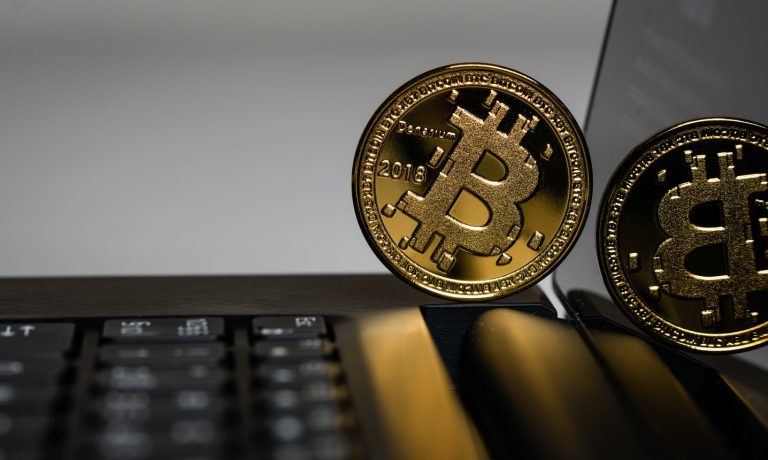Within the blockchain business, we should see the longer term earlier than others.
BTC has risen to the best level in historical past, and now it’s not appropriate for us to take a heavy place.
From the attitude of funding, funding primarily based on fundamentals is the kingcraft funding, which is the psychological cornerstone for folks to face short-term fluctuations and stay agency, in order that the explosive energy of BTC, ETH, LTC, dot, uni, and so on. within the bull market won’t be ignored. The affect of fundamentals on the secondary market value can solely be exerted within the bull market stage.
So what are we going to speculate subsequent to create extra earnings for us?
The reply is to discuss with what organizations are laying out.
Lately, with the pinnacle utility RR dVod coming on-line quickly, and the airdrop transformation of the unique Web undertaking, YYeTs has gathered “capital” in 16 years, together with 20 million lively customers and information swimming pools, tens of 1000’s of part-time translators from everywhere in the world, and almost 100000 translation lovers.
The general growth progress of CVNT aware worth community is comparatively optimistic, and the longer term has change into increasingly more clear. Many institutional buyers round them regard CVNT as a uncommon alternative and deal with the format.
Blockchain undertaking is the competitors of capital within the last evaluation. For peculiar folks, alternatives will solely seem within the earliest stage, solely when a considerable amount of funds don’t enter the market in batches. The CVNT storage mining and RR dVod content material distribution mining, which shall be began quickly, are seemingly to offer start to various new wealthy folks within the coin circle
Alternatives are fleeting. Contemplating that CVNT can also be an outdated public chain undertaking, I cannot elaborate on the background of the undertaking and the entire storage public chain observe within the following contents. I’ll deconstruct the foreign money value rise and appreciation logic most involved by everybody from three views: the basics of the undertaking, the pinnacle utility RR dVod and the worth seize of CVNT token.
CVNT: 2021 New Pattern in Blockchain Trade
CVNT aware worth community (hereinafter known as CVNT) is dedicated to fixing the issues of low efficiency, poor safety, excessive growth problem and extreme dependence on service prices of present blockchain purposes, and realizing the efficiency growth and decentralized storage of distributed purposes. The newly upgraded “VRF consensus major chain + PoST+ double chain construction” runs completely in the primary community launched by CVNT in the course of final 12 months, establishing a excessive scalability, excessive efficiency and secure underlying storage structure. Primarily based on the brand new consensus algorithm, the block pace, success charge, delay, server price and scalability price of CVNT’s major community drastically surpass these of the identical sort of public chain. As well as, there are numerous improvements in the way in which of know-how growth, which collectively assist the positioning of “distributed database cloud + BaaS platform” and the belief of associated capabilities.
In contrast with Filecoin, which additionally makes use of the consensus of PoST, CVNT major community goes on-line earlier. At current, the block top is sort of 50 million, TPS / CTPs is greater than 50000, and 100 tremendous nodes are supported. On the idea of inheriting the prevailing mature scheme, all some great benefits of PoST are realized by superposition, and the present technical dilemma of Filecoin is damaged down one after the other. In contrast with the lengthy undertaking cycle and big purpose setting of Filecoin, CVNT pays extra consideration to the large-scale implementation of economic stage decentralized purposes, helps the present Web initiatives migration and conventional entity enterprise asset digitization, together with the mixing of baas know-how into its personal enterprise.
RR dVod is a decentralized and modern video community system deployed on the CVNT worth aware community, which carries 20 million customers of YYeTs to deploy on the chain. The product system covers three useful modules: video content material participant / distribution / search, high-quality content material funding and fairness, and distributed DSN.
Due to the extraordinary competitiveness of RR dVod, many individuals assume that CVNT is prone to change into an enormous Mac undertaking in 2021. As well as, from the latest state of affairs, probably the most tough half within the growth of CVNT is near completion. Within the Q1-Q2 roadmap launched in January, we will see the 4 main replace plans of CVNT. Every of those updates factors to the massive market of billions of , reflecting the excessive pondering of the undertaking core staff on the implementation and evolution of blockchain know-how up to now two years. These embrace:
(1) Evolving the pest consensus
Construct normal stage decentralized (distributed) storage infrastructure
The essence of blockchain is distributed and decentralized. One of many bottlenecks within the growth of blockchain is the distributed storage capability. Particularly for most elementary public chains, tips on how to retailer a considerable amount of information of their major chain is an pressing drawback. The longer term distributed utility (DAPP) needs to change into an excellent utility broadly utilized by the general public, it should additionally resolve the storage drawback. Due to this fact, the distributed storage of CVNT is prone to change into the infrastructure of the longer term blockchain business, which brings us enormous creativeness.
(2) Redefine the operation mode of erc20
IPFS and Filecoin undertake the submit storage capability consensus algorithm to comprehend the primary storage chain, however it’s virtually unimaginable to attain good integration when it comes to sensible contract and digital machine. CVNT introduces a multi language supported sensible contract digital machine to comprehend a operate just like “bridging”, that’s, CVNT is allowed to run sensible contracts of different blockchain initiatives, and different blockchains are additionally allowed to run sensible contracts of CVNT.
(three) The following era of smarter sensible contracts
CVNT’s sensible contract is an especially safe and secure subsequent era sensible contract, which extends and helps new enterprise utility stage capabilities resembling NFT’s registered property, and absolutely helps decentralized purposes to guard privateness. It will allow CVNT community to assist the necessities of many enterprise stage blockchain purposes, which is an especially broad blue ocean market.
(four) Enhance the scalability of the underlying public chain and keep away from laborious bifurcation
CVNT VRF consensus major chain depends on the random algorithm with little computation and virtually no delay. When it comes to scalability, the algorithm could make an incredible breakthrough. On the identical time, just one block with the best precedence is notarized each time, which signifies that the blockchain will hardly bifurcate. Primarily based on this, if new know-how seems sooner or later, it may be simply added to the CVNT system, which is conducive to the improve and iteration of the system.
To benefit from the candy asset progress introduced by high-quality digital property now could be the results of “elementary funding is kingly funding” and taking funding actions accordingly when there may be panic in bear market.
Due to this fact, from the framework of CVNT and the present operation of the primary community, we will see the dedication and braveness of the staff to open up the period of public chain three.zero. Each step is regular, prepared to speculate assets for the technical imaginative and prescient, and the promised technical milestone by no means jumps. It’s a actual primary sturdy undertaking.
20 million customers have joined CVNT. The longer term is beckoning to you. What are you ready for?









